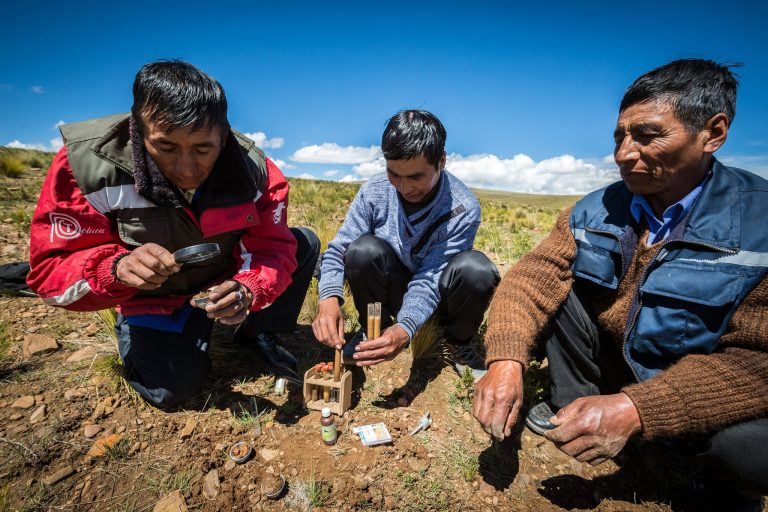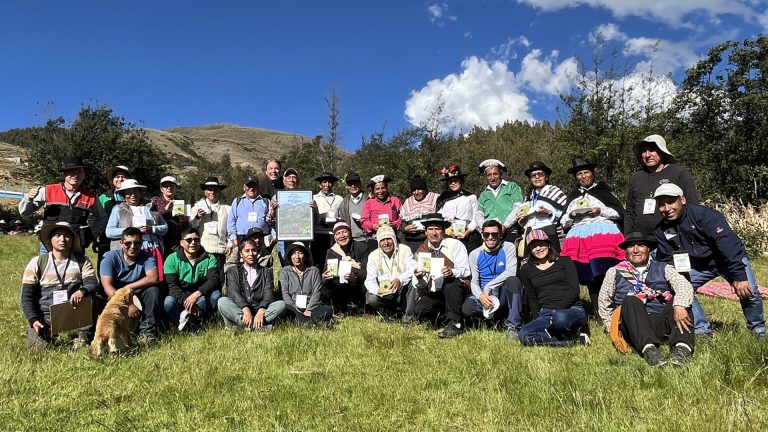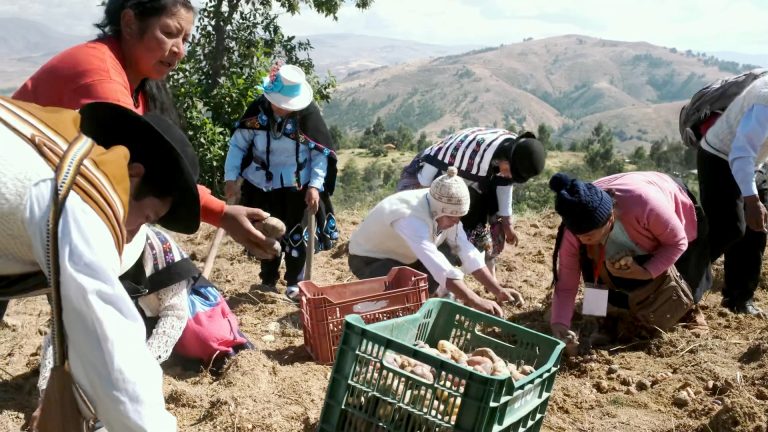The CCRP uses a “theory of change” to represent the ways in which we intend to contribute to better livelihoods, productivity, and nutrition for farming communities.
Our theory of change (below) maps two interrelated and distinct pathways through which our work is intended to make an impact. One is support for agriculture systems (individual farms and adjacent farms in an area that share common environmental, cultural, and socio-economic characteristics) to improve performance at the farm level. The other is support for institutions (national research institutions, farmer organizations, non-governmental organizations, and others) to increase relevance and impact of agriculture research and development efforts, which provide a foundation for sustained improvements in farming.
The theory of change helps us identify funding strategies at the project, regional, and program level; identify research priorities and appropriate partners; and determine the lens through which to evaluate our work. The theory of change provides a unified framework to understand how the CCRP’s research outputs and our grantee support processes combine to create impact.
We continually test, revise, and refine this theory of change both to improve our own programming as well as that of our grantees and to use what we learn to leverage greater resources for communities. Grantees are also asked to develop explicit theory of change documents. The program and project theory of change documents are continually utilized and refined.



